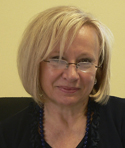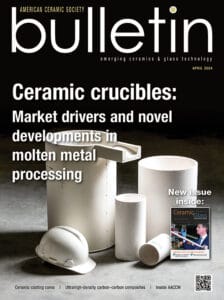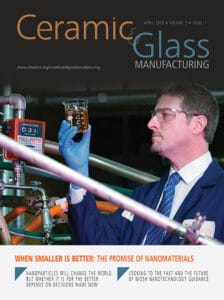 Alida Bellosi is the Director of the ISTEC Institute of Science and Technology for Ceramics-CNR, Faenza, Italy. She was educated at the University of Bologna, where she earned a degree (cum Laude) in Physics in 1974, and a PhD in Physical Chemistry. She joined ISTEC-CNR in 1976 as a researcher. In 2001 she was appointed Research Manager and in 2010 she became the ISTEC Director.
Alida Bellosi is the Director of the ISTEC Institute of Science and Technology for Ceramics-CNR, Faenza, Italy. She was educated at the University of Bologna, where she earned a degree (cum Laude) in Physics in 1974, and a PhD in Physical Chemistry. She joined ISTEC-CNR in 1976 as a researcher. In 2001 she was appointed Research Manager and in 2010 she became the ISTEC Director.
Dr. Bellosi’s primary fields of research involve structural advanced ceramics: oxide and non-oxide-based monolithics, composite ceramics and ultra-refractory ceramics for engineering and biostructural applications. She combined her experimental activities with managing and promoting technologies, fostering cooperation, partnerships, new research and technology transfer structures, and integrating multidisciplinary partners for the success of R&D initiatives.
She has co-authored more than 300 papers and holds 3 patents. She is Editor of some 10 books: Proceedings of Schools, Meetings, Congresses, NATO-ARW. She has presented about 50 invited talks or key-notes at international conferences.
Dr. Bellosi has been project leader for many contracts with industries, and projects with national and international institutions in the frame of EU programmes, of bilateral collaboration with partners in Japan, USA, China, Indonesia, and Vietnam. She served as a member of Advisory and Evaluators Committees at national and international levels, and she organized, in the role of Chair or Co-chair, relevant congresses of the European Ceramic Society and ICF, the ECI Conference and NATO-ARW. She acted as Tutor to some 20 Master or PhD students.
She is going to receive the nomination of the European Ceramic Society Fellow, because since 2010 she has acted as coordinator of the Working Group R&D of ECerS. Currently, she is member of the Engineering Ceramics Division of The American Ceramic Society.
Her current commitments as Director of ISTEC (hosting more than one hundred people including scientists, associated professors from Universities, technicians, students and visitors) involve research programming and managing, control, upgrading and organization of laboratories, management of staff, evaluating and discussing collaborative programmes.




